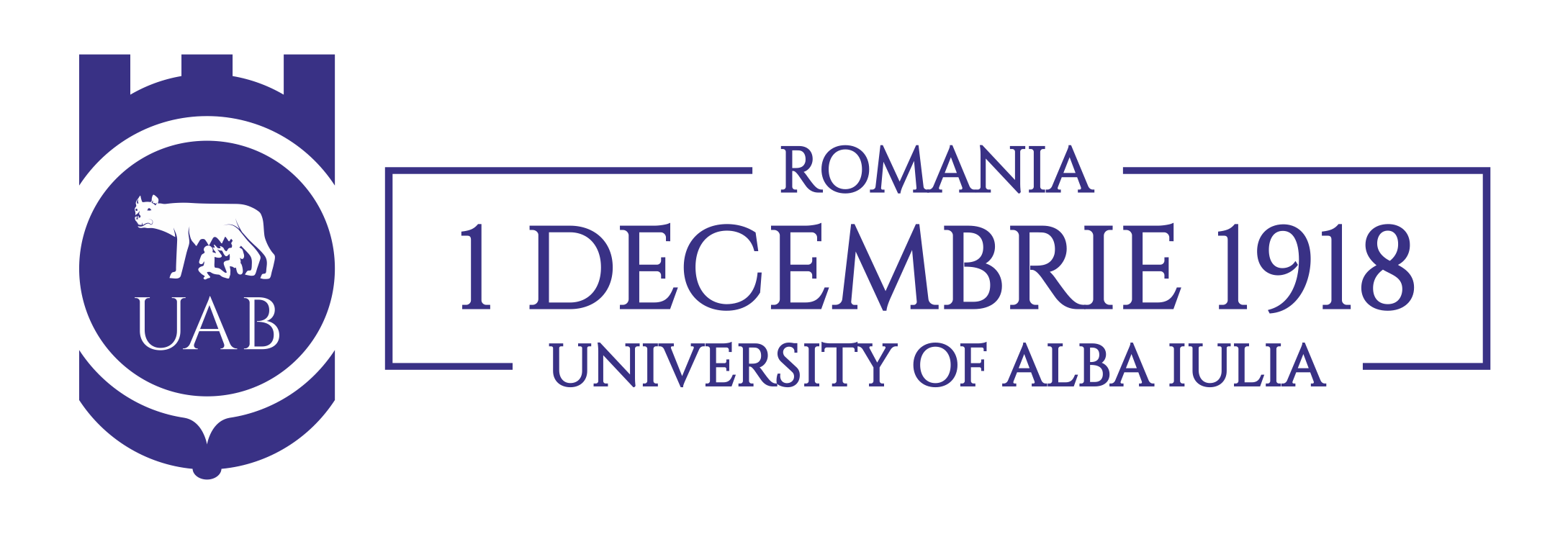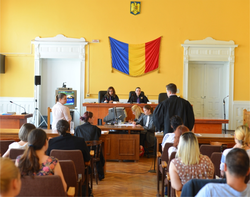
Accredited Program, duration of studies- 4 years / 240 credits
Graduates of the Law specialization can hold positions of:
Magistrates;
Lawyers;
Notaries;
Legal advisers;
Solicitors;
Teachers in pre-university and university education;
Senior civil servants in the state, central and local administration, in the administrative apparatus of justice, police, in the financial-fiscal system.
Professional skills:
-Adequate use of concepts, theories, paradigms and methodologies in the legal field;
-Application of techniques and tools specific to the legal field;
-Application of Romanian legislation, European legislation and other international legal instruments;
-Interpretation, correlation and comparison of legal institutions under national law, European law and the law of other states;
-Applying the necessary knowledge in collecting data and information on a specific legal issue;
- The use of the legislation in force in the analysis of legal situations, in their correct violation from the legal point of view and their solution;
Transversal skills:
-Responsible execution of professional tasks, in conditions of restricted autonomy and qualified assistance;
-Familiarity with the roles and activities specific to teamwork and distribution of tasks for subordinate levels;
-Awareness of the need for continuous training. Efficient use of learning resources and techniques for personal and professional development.

Accredited Program, duration of studies- 3 years / 180 credits
Graduates of the Sociology specialization can hold positions of:
- Sociologist;
- Research assistant in sociology;
- Territorial planning specialist;
Professional skills:
- Designing and conducting sociological research in organizations, communities, cultural and market research;
- Management of information systems based on social indicators;
- Diagnosis of social / sociological problems and application in the design of public and social policies.
Transversal skills:
- Implementing rigorous, efficient and responsible work strategies, punctuality and personal responsibility for the result in accordance with the codes of professional conduct;
-Assimilation of group relationship techniques. Developing empathic skills in interpersonal communication and taking on specific roles in teamwork.
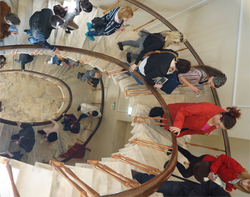
Accredited Program, duration of studies- 3 years / 180 credits
Graduates of the Social Work specialization can hold positions of:
- Social worker;
- Assistant for the care of the elderly;
- Social Work Research Assistant;
Professional skills:
- Identification, collection of information, documentation, evaluation and recording of information, analysis, evaluation and specific intervention to reduce social risks at the individual, family, group, community and societal level;
- Development, implementation and evaluation of projects, programs and social work policies for various vulnerable categories;
- Development of prevention services and activities as well as support services provided to the beneficiaries of the social work system;
- Advice on accessing community resources for people and social groups excluded or at risk of social exclusion (institutions, services, benefits);
- Counseling and other specialized methods of intervention provided in the family or institutional environment in compliance with the values and principles specific to social work;
- Communication and professional relationships. Beneficiaries and other social factors involved.
Transversal skills:
- Objective and reasoned approach, theoretically and practically, to problem situations in order to solve them efficiently while respecting the values and principles specific to social work;
- Application of efficient work techniques in transdisciplinary team on various hierarchical levels at intra and interorganizational level;
- - Objective self-assessment of the need for training and identification of resources and ways of personal and professional development in order to insert and adapt to the requirements of the labor market.

Accredited Program, duration of studies- 3 years / 180 credits
Graduates of the Public Administration specialization can hold positions of:
- Public administration advisor;
- Town hall secretaries;
- Civil servants and other officials;
Professional skills:
- The use of the concepts and fundamental principles of organization and functioning of the administrative structures for the professional insertion in public and / or private institutions;
- Identifying and applying the legal provisions regarding the administrative system, including the initiation and formulation of proposals for normative and / or administrative acts;
- Oral and written communication, in the language of the study program and in a language of international circulation, of some structured messages regarding a given problem of the specialty;
- Application of strategic tools for institutional development;
- Administration of specific activities in the field, respecting the professional ethics and deontology of the institution;
- Identifying, analyzing and solving problems in the public administration, in a cooperative, flexible and efficient way.
Transversal skills:
- Fulfilling on time, in a rigorous, efficient and responsible manner, the professional tasks, respecting the ethical principles and the professional deontology;
- Applying group relationship techniques, learning and exercising specific roles in teamwork, by developing interpersonal communication skills;
- Self-assessment of the need for professional training, identification of resources, training methods, personal and professional development, to insert and adapt to the requirements of the labor market.
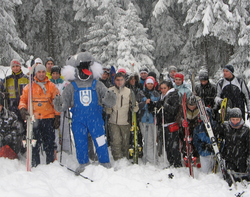
Accredited Program, duration of studies- 3 years / 180 credits
Qualifications:
- Teacher in high school and post-high school education;
- Teacher in secondary education;
Professional skills:
- Modular design (Physical Education and Sports, Sports and Motility performance, Physical therapy and special motility skills) and planning of the basic contents of the field with interdisciplinary orientation;
- Organizing the integrated curriculum and the training and learning environment, with an interdisciplinary focus (Physical Education and Sports, Sports and Motility performance, Physical therapy and special motility skills);
- Assessment of physical growth and development and the quality of motor skills according to the specific requirements / objectives of physical education and sports, the attitude towards the independent practice of physical exercise;
- Description and demonstration of operational systems specific to Physical and Sports Education, by age groups;
- Assessment of the level of training of practitioners of physical education and sports activities;
- Use of management and marketing elements specific to the field.
Transversal skills:
- Organizing physical education and sports activities for people of different ages and levels of training in conditions of qualified assistance, in compliance with the rules of ethics and professional ethics;
- Fulfilling in conditions of efficiency and effectiveness the work tasks for the organization and development of sports activities;
- Operating with digital programs, documentation and communication in an international language.

Accredited Program, duration of studies- 3 years / 180 credits
Qualifications:
- Kinetotherapist;
- Medical physical education teacher;
Professional skills:
- Modular design and planning of the basic contents pertaining to the field with interdisciplinary orientation;
- Organizing the integrated curriculum and the training and learning environment, with an interdisciplinary focus;
- Primary clinical evaluation (functional) and diagnosis of the needs for physiotherapy intervention;
- Carrying out the kineto-therapeutic intervention programs, with curative prophylactic and recovery character;
- Use of kineto-therapeutic intervention methods and techniques;
- Use of management and marketing elements specific to the field.
Transversal skills:
- Organizing physiotherapy programs in conditions of qualified assistance, in compliance with the norms of professional ethics and deontology;
- Fulfilling in conditions of efficiency and effectiveness the work tasks for the organization and development of the activities specific to the kineto-therapeutic interventions;
- Objective self-assessment of the need for professional training to insert and adapt to the requirements of the labor market, according to their own personal development project.
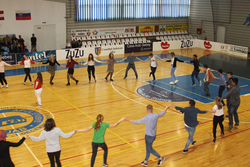
Accredited Program, duration of studies- 3 years / 180 credits
Qualifications:
- Occupational therapist;
- Specialist in occupational assessment of people with disabilities;
Professional skills:
- Operating with fundamental concepts in the field of psychology.
- Designing the research approach in the field of psychology.
- Identification and assessment of needs; occupational and problem situations.
- Management and promotion of occupational therapy.
- Design and implementation of occupational therapy interventions;
- Relationship and interpersonal communication specific to occupational therapy.
Transversal skills:
- Responsible execution of professional tasks by using knowledge and understanding the meaning and relationship between function vs. disability, environment and health;
- Applying efficient work techniques in the multidisciplinary team on various hierarchical levels;
- Self-assessment of the needs of continuous training in order to adapt the professional competencies to the dynamics of the social context.

Duration of studies
3 years
Brief presentation
The HUMAN RESOURCES study program provides professional training for professions in the field of human resources or marketing. This program offers a complex training profile, including openness to international relations. Thus, both fundamental disciplines in sociology and complementary disciplines (e.g. in the field of psychology, anthropology, law, economics) are studied. Students also have the opportunity to study certain optional subjects, so all these are a guarantee of the training of future good professionals in their field of activity.
Qualifications and professions upon graduation
The qualifications and professions acquired after graduating from the Human Resources specialization are: human resources consultant, labor relations specialist, organizational development specialist.
Main subjects studied
Introduction to Sociology, Social Science Research Methodology, Psychology, Elements of Law, Macroeconomics and Entrepreneurship, Informatics and Database Systems, Social Research Methods and Techniques, Social Psychology, Job Analysis and Job Description Design, Fundamentals of Human Resources, Social Statistics, Labor and Organization Law, Human Resources Vocational Training, Microeconomics, and Payroll Introduction.
Aspects regarding professional practice
Students carry out internships within: Human Resources (HR) Departments within public and private institutions.
Possibilities for further studies (master's degree, doctorate)
Master's Degree: Human Resources Development and Management (Sociology Field)
Employment opportunities
Following the passing of the entrance exam to the profession, there are job opportunities such as: Labor Market Analyst; Employee recruitment/integration analyst; Payroll Systems Analyst, Public Administration Advisor; Labor Force and Unemployment Counselor; Career Guidance Counselor, Personal Reconversion-Mobility Consultant; Professional skills evaluator; Specialized inspector for training, evaluation and professional selection; Mentor; Teacher in secondary education; Specialist referent for labour force and unemployment; Marketing Specialist Referent; Sociologist; Social Relations Specialist; Human Resources Specialist; Recruitment specialist; Specialist in labor relations.

Duration of studies
4 years
Brief presentation
The NURSING study program provides professional training for health professions. This program offers a complex training profile, including openness to international relations. Thus, both fundamental disciplines in health and complementary disciplines (for example in the field of psychology) are studied. Students also have the opportunity to study certain optional subjects, so all these are a guarantee of the formation of future good professionals in their field of activity.
Qualifications and professions upon graduation
The qualifications and professions acquired after graduating the Nursing specialization are: General Nurse
Main subjects studied
Anatomy, Biochemistry, Biophysics, Physiology, General Nursing, Immunology, Clinical Nursing, Medical Emergencies and First Aid, Internal Medicine, Home Care, Paediatrics and Childcare, Skilled Care in Surgical Specialties, General Surgery, Epidemiology, Infectious Diseases, Skilled Care in Endocrinology, Diabetes, Nutrition and Metabolic Diseases.
Aspects regarding professional practice
The students carry out internships at: the Alba County Hospital, the Family Doctors' Offices, the Alba Iulia Ambulance Service, or other institutions that have nursing activities.
Employment opportunities
Following the passing of the entrance exam to the profession there are employment opportunities such as: General Nurse
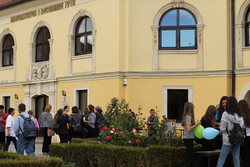
Accredited Program, duration of studies 2 semesters/60 credits
Qualifications:
Legal expert;
Probation Counselor;
Researcher in the field of legal sciences;
Specific Skills:
1. Competences expressed in knowledge
- Description and in-depth concepts, methodologies and procedures specific to private law institutions;
-Establishing actions, tasks and responsibilities for solving the specific problems of the main private law institutions;
2. Competences expressed in skills
- Acquisition of the ability to identify and describe concepts, methodologies, and procedures specific to the activity specific to private law institutions;
-Establishing and prioritizing objectives, identifying risks and determining resources for implementing policies, programs and projects in the field of private law institutions;
- Designing tasks, responsibilities and hierarchies specific to policies, programs and projects at the level of private law institutions;
- Elaboration and application of specific interventions for the development and organization of the activity related to private law institutions.
3. Attitudinal skills
- Respect for the socio-cultural diversity of the public and private environment
- Interest and sensitivity for issues specific to the development of activities related to private law institutions;
- Intrinsic motivation to solve problems that arise in the specific activity of private law institutions.
Transversal skills:
- Fulfilling on time, in a rigorous, efficient and responsible manner, the professional tasks, respecting the ethical principles and the professional deontology;
- Applying group relationship techniques, learning and exercising specific roles in teamwork, by developing interpersonal communication skills;
- Self-assessment of the need for professional training and identification of resources and ways of training and personal and professional development, to insert and adapt to the requirements of the labor market.

Accredited Program, duration of studies 2 semesters/60 credits
Qualifications:
- Forensic Expert;
- Legal Expert;
- Expert in preventing and combating corruption.
Specific Skills:
- Competences expressed in knowledge
- Description and in-depth concepts, methodologies and procedures specific to criminal sciences and criminology;
-Establishing actions, tasks and responsibilities for solving the specific problems pertaining to criminal sciences and criminology;
- Competences expressed in skills
- Acquisition of the ability to identify and describe concepts, methodologies, and procedures specific to the activity pertaining to criminal sciences and criminology;
-Establishing and prioritizing objectives, identifying risks and determining resources for implementing policies, programs and projects in the field of criminal sciences and criminology;
- Designing tasks, responsibilities and hierarchies specific to policies, programs and projects at the level of criminal sciences and criminology;
- Elaboration and application of specific interventions for the development and organization of the activity related to criminal sciences and criminology.
- Attitudinal skills
- Respect for the socio-cultural diversity of the public and private environment
- Interest and sensitivity for issues specific to the development of activities specific to criminal sciences and criminology;
- Intrinsic motivation to solve problems that arise in the specific activity of criminal sciences and criminology.
Transversal skills:
- Fulfilling on time, in a rigorous, efficient and responsible manner, the professional tasks, respecting the ethical principles and the professional deontology;
- Applying group relationship techniques, learning and exercising specific roles in teamwork, by developing interpersonal communication skills.
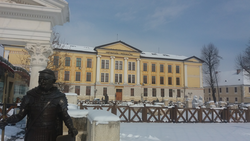
Accredited Program, duration of studies 4 semesters/120 credits
Qualifications:
- Assistant Director / Head of Function;
- Spokesman;
- Protocol and ceremonial specialist;
Specific Skills:
1. Competences expressed in knowledge
- Description and in-depth concepts, methodologies and procedures specific to managerial assistance in the public and private sectors;
-Establishing actions, tasks and responsibilities for solving the specific problems pertaining to the managerial assistance in the public and private sectors;
2. Competences expressed in skills
- Acquisition of the ability to identify and describe concepts, methodologies, and procedures specific to the activity pertaining to managerial assistance in the public and private sectors;
-Establishing and prioritizing objectives, identifying risks and determining resources for implementing policies, programs and projects;
- Designing tasks, responsibilities and hierarchies specific to policies, programs and projects at the level of managerial assistance in the public and private sectors;
- Elaboration and application of specific interventions for the development and organization of the activity related to managerial assistance in the public and private sectors.
3. Attitudinal skills
- Respect for the socio-cultural diversity of the public and private environment
- Interest and sensitivity for issues specific to the development of activities specific to managerial assistance in the public and private sectors;
- Intrinsic motivation to solve problems that arise in the activity of managerial assistance in the public and private sectors.
Transversal skills:
- Fulfilling on time, in a rigorous, efficient and responsible manner, the professional tasks, respecting the ethical principles and the professional deontology;
- Applying group relationship techniques, learning and exercising specific roles in teamwork, by developing interpersonal communication skills;
- Self-assessment of the need for professional training and identification of resources and ways of training and personal and professional development, to insert and adapt to the requirements of the labor market.
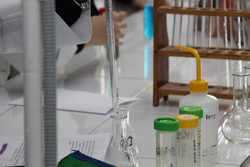
Accredited Program, duration of studies 4 semesters/120 credits
Qualifications:
- Project manager;
- Process Improvement Manager;
- Innovation Manager;
Specific Skills:
- Defining and deepening the concepts, methodologies, and procedures specific to planning, organizing, coordinating, and controlling;
- Explain and interpret the conceptual and methodological framework of planning, organizing, coordinating, and controlling;
- Establishing actions, tasks, and responsibilities for solving problems specific to the management of social and health services;
- Development and application of criteria and methods for evaluating the activities and staff of social and health services;
- Elaboration of projects for the development of social and health services.
Transversal skills:
- Development of organizational and managerial work strategies based on the principles, guidelines, and values of the code of professional ethics;
- Develop empathic skills in interpersonal communication and taking on specific roles in teamwork;
- The efficient use of information sources and of the resources of communication and assisted professional training both in Romanian and in a language of international circulation.
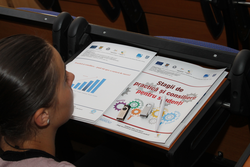
Accredited Program, duration of studies 4 semesters/120 credits
Qualifications:
- Human Resources Specialist;
- Employee Recruitment / Integration Analyst;
- Specialist Inspector of labor and unemployment.
Specific Skills:
- Knowledge and deepening of the main theories and practices regarding the development and management of human resources;
- Substantiation and optimization of decisions at the organizational level regarding the development and management of human resources;
- Development and implementation of strategies, programs and plans for the development and management of human resources;
- Analysis and optimization of communication in the organizational environment;
- Designing sociological research to solve / improve human resources problems;
- Acquiring skills to develop and implement interventions specific to human resources issues.
Transversal skills:
- Development of organizational and managerial work strategies based on the principles, guidelines and values of the code of professional ethics;
- Develop empathic skills in interpersonal communication and taking on specific roles in teamwork;
- The efficient use of information sources and of the resources of communication and assisted professional training both in Romanian and in a language of international circulation.
